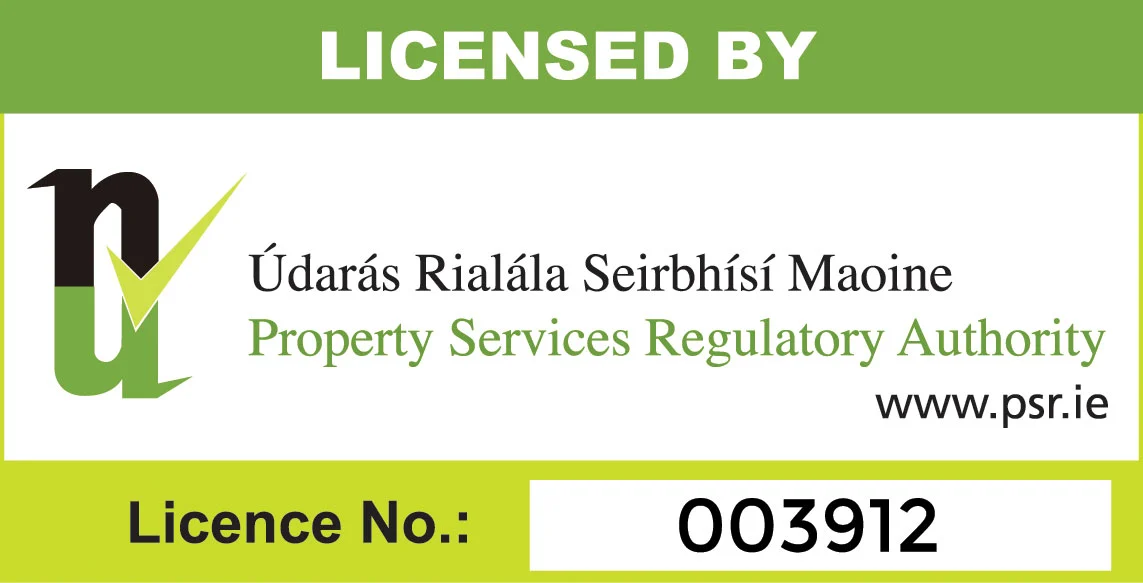Buying a House is Easier than You Think
How to Buy a Property in Ireland with No Deposit and No Monthly Repayments
The term “housing crisis” has become part of our daily discourse in Ireland. You can’t open a newspaper, listen to a radio show or watch a current affairs programme without reference being made to “the crisis”. The government is continually on the back foot as they are deemed to be responsible for the crisis. Sinn Féin is soaring in the polls because they are going to end the crisis. The fact however is that for the vast majority of people, the extremely generous supports on offer makes buying a property a straight-forward process. Thousands quietly do it each year while the crisis supposedly rages on.
In this example, we will look at a couple in Cork earning a combined annual salary of €55,000. Assuming they both work 40 hours per week, this means their hourly rate is €13.2. For context, minimum wage is €10.5/hr.
The Property
We’re going to go for the new build, type A1 in Dromdiah Park in east Cork, approximately a half hour drive outside the city. This is a 3-bed, end terrace, A-rated property on sale now for €290,000 with a €7000 fit out allowance. You can see the listing on MyHome.ie by clicking here.

For those who want to be a bit closer to the city, there are the type C, A-rated new builds in Whitechurch, a 15 minute drive to the city, in a development called Castle Court. 3-bed semi-detached properties are for sale on MyHome at €305,000 - here’s the link.
The Deposit
The couple can avail of the Help to Buy tax rebate for €29,000 so there is no need for them to have saved a deposit. If they go for the Whitechurch property, they will need to save a €500 deposit with the government paying the remaining €30k. That wasn’t too hard, given the, eh, crisis. There will probably be some catch later in the process.
The Mortgage
The maximum that a commercial bank can lend to this fictional couple, under our very restrictive macro-prudential rules, is 3.5 times their joint salary. In the UK, five times salary is commonplace with some lenders going higher than that but that’s another day’s discussion. So they will be approved for €192,500. Adding the €29,000 rebate to this gets them to €221,500. They’re short €68,500. Aha - they can’t buy the home; they’re stuck in the rental market forever. This is the crisis! Right? Wrong.
Were their options exhausted at this point, talk of a housing crisis may be justified as a couple on these salaries, paying high rent, will never be able to save €68,500. Alas the government is on hand again.
Later this year, the First Home Shared Equity Scheme will be launched. In the above example, the government will lend the €68,500 to the couple with no interest or capital payments due for the first five years and interest only payments at ultra low rates thereafter. In return, the government would take an equity stake of 23.6% in the property. The couple can buy out this stake at any point or failing that, pay the government 23.6% of the sales price should they sell at some point. Problem solved. But this isn’t live just yet and in fact, we actually don’t need it to get this hypothetical purchase over the line.
This couple qualifies for a Local Authority Home Loan as their joint salaries are less than €65k. This is a government backed scheme that offers low, fixed interest rate loans for amounts in excess of the 3.5 times salary cap that applies to commercial banks. It does seem paradoxical and counter-intuitive that lower earners are allowed to borrow a higher multiple of their salary but again, that’s for another day. The fictional couple in our example can borrow €288,000 at a fixed rate of 2.745% over 30 years. This is 5.2 times their salary; you can use the calculator here.

This gets them to €288,000 + €29,000 = €317,000 which is actually more than they need to buy the 3-bed, A-rated new property a half hour drive from the city. They only need €261,000 (€290k purchase price minus the 10% Help to Buy Deposit rebate) which would get their monthly repayments down to just over €1k/month. So now this couple has secured their first home without having to save a single Euro and remember they have a €7k fit out allowance.
Are Local Authority Home Loans Actually Being Approved?
Being able to circumvent the restrictive 3.5 times salary cap is the difference between being able to buy and not for many so the Local Authority Home Loans are clearly crucial. But are many loans being approved and if so for what values?
Data from the Department of Housing shows that the number, and in particular the value, of loans being approved has increased dramatically from 2018. In 2018 alone, a total of €224.7m of loans were approved across 1165 approvals. This is an average value of €192,875 per loan. Meaningful sums are being approved each year; the money appears to be there for those who apply for it.


The Monthly Repayments
The mortgage payments here work out at circa €1k/month or €500 per borrower; this is very manageable and far less than they would have been paying in rent. If they wish, they could rent two of the three rooms in the property for €500/month each; this income would be tax free under the Rent a Room Scheme and would reduce the couple’s effective monthly mortgage outgoings to zero. Obviously should they want to have children, this may be only a short term measure to boost savings for a period or maybe not feasible at all if they already have children.
What About the Crisis?
In the above example, by utilising Help to Buy, Local Authority Home Loan & Rent a Room Scheme, the couple, earning just more than minimum wage, have become the proud owners of a beautiful new home, 30 minutes outside the second city in the country, with effectively no monthly mortgage repayments. If they’d prefer not to rent any rooms, the repayments are a manageable €1k/month. Situations like the above play out thousands of times per year with energetic, industrious, can-do, positive buyers making use of the government tools to get their purchase over the line.
OK - Maybe There’s No Crisis in Cork….But There IS a Crisis in Dublin!
There is no doubt that things become more challenging in Dublin but still a long way from a crisis. Two bed, starter homes are currently on sale for €310,000 in Newcastle, 25 minutes outside the city. The same economics as outlined above hold true here. For those earning average salaries, there are a number of developments with prices in the mid 300 thousands which would be eminently affordable, with the bulk of the deposit covered by Help to Buy. Prices are lower in the second hand market and Local Authority Home Loans can be used on second hand properties so these provide more options. One sticking point there is that Help to Buy is restricted to new builds so some saving will be required.
Alas, you won’t sell many newspapers with a headline “Young Couple Buys a House Without Much Hassle”. Sinn Féin won’t make any political capital standing in Dail indignantly bellowing “people can now buy houses using well thought out government assistance schemes!”
For people like the above fictional couple, they open the papers to dramatic headlines like “Housing Crisis Rages Out of Control” and just can’t reconcile it with their experience where the government was on hand every step of the way to bring their dream of home ownership to life. And that’s even before the First Home Shared Equity Scheme is introduced. Crisis…what crisis?

